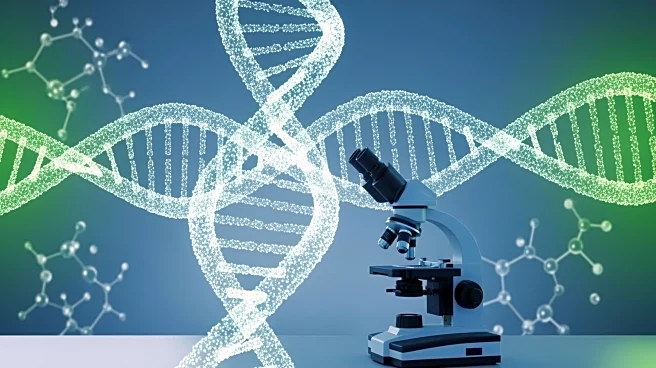What's Happening?
Novartis has announced a significant acquisition of Avidity Biosciences, a San Diego-based RNA specialist, in a deal valued at approximately $12 billion. This acquisition marks one of the largest in Novartis'
history, with the company paying $72 per share, representing a 46% premium over Avidity's closing share price. The acquisition grants Novartis access to Avidity's RNA drug discovery platform, which is designed to develop candidates capable of penetrating hard-to-reach tissues. Additionally, Novartis will gain a late-stage pipeline of therapies targeting rare muscle disorders. As part of the transaction, Avidity will spin off some early-stage programs into a new company, which will be chaired by Avidity's CEO, Sarah Boyce. This move comes as Novartis seeks to bolster its pipeline in anticipation of losing market exclusivity for key drugs, including its heart failure therapy Entresto and immunology drug Cosentyx.
Why It's Important?
The acquisition of Avidity Biosciences by Novartis is a strategic move to strengthen its position in the RNA therapeutics market, which is gaining traction due to its potential to address unmet medical needs. This deal is particularly significant as it provides Novartis with a robust platform for developing treatments for rare neuromuscular disorders, a field with limited competition and high demand. The acquisition also reflects Novartis' strategy to diversify its portfolio and mitigate the impact of upcoming patent expirations on its blockbuster drugs. By investing in innovative RNA technologies, Novartis aims to secure multi-billion-dollar opportunities and maintain its competitive edge in the pharmaceutical industry.
What's Next?
Following the acquisition, Novartis plans to advance Avidity's pipeline, with a focus on filing for approval of delpacibart zotadirsen (del-zota) for Duchenne muscular dystrophy in the U.S. by the first quarter of 2026. The company also intends to pursue regulatory filings for other candidates in Avidity's platform, including treatments for myotonic dystrophy type 1 and facioscapulohumeral muscular dystrophy. Novartis expects the deal to close in the first half of next year, with potential product launches anticipated before 2030. The success of these programs could significantly enhance Novartis' market position and revenue streams in the coming years.









